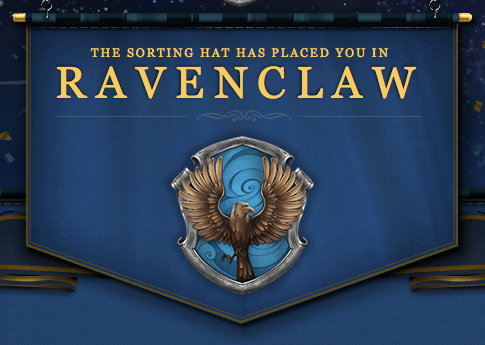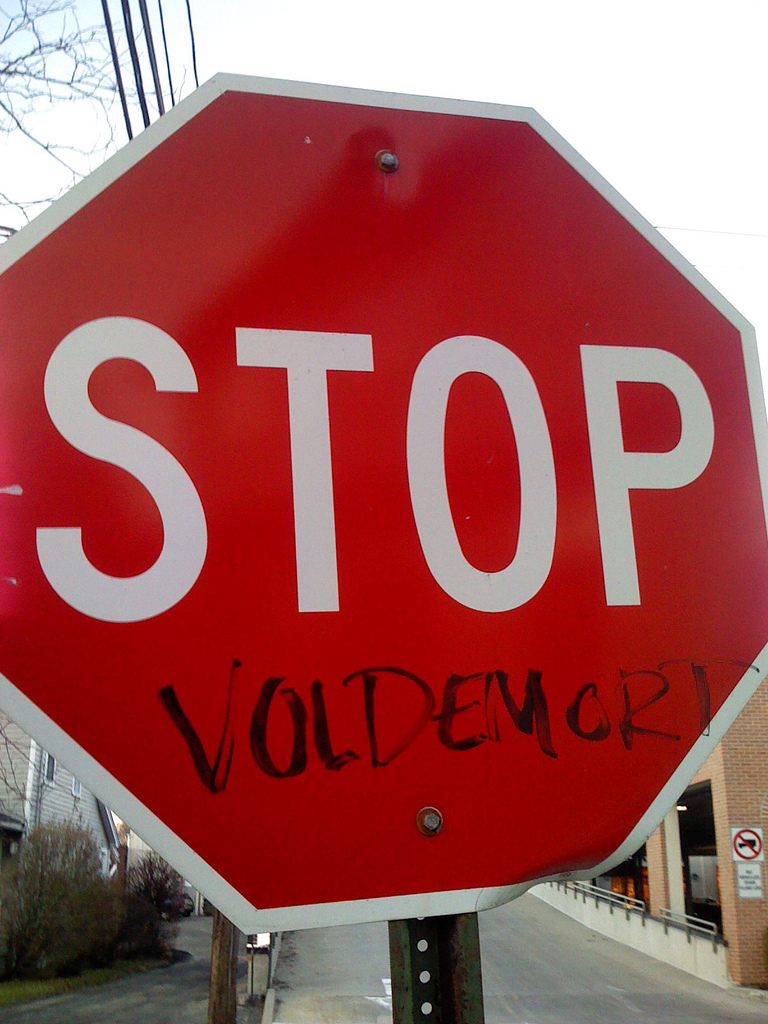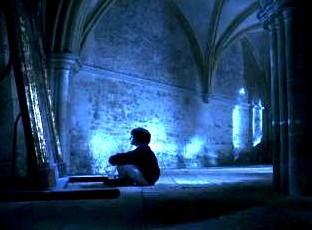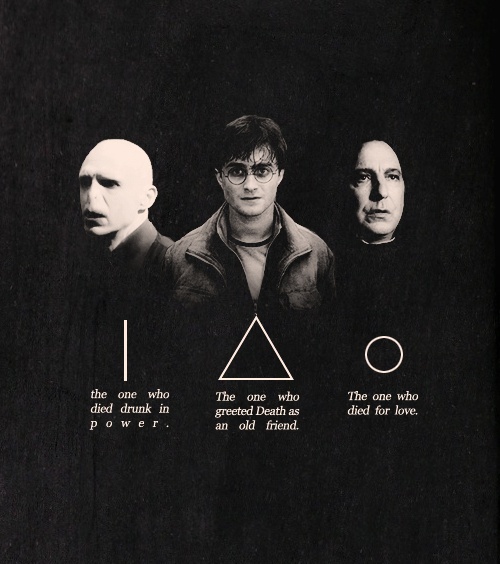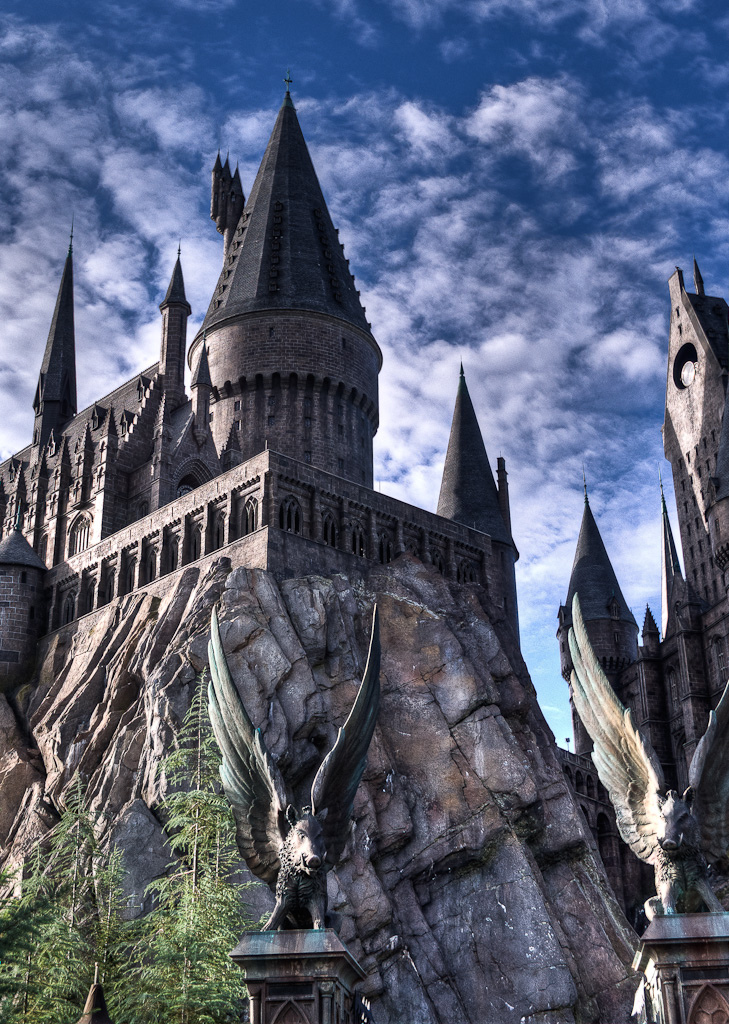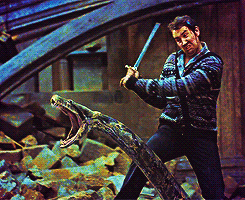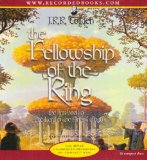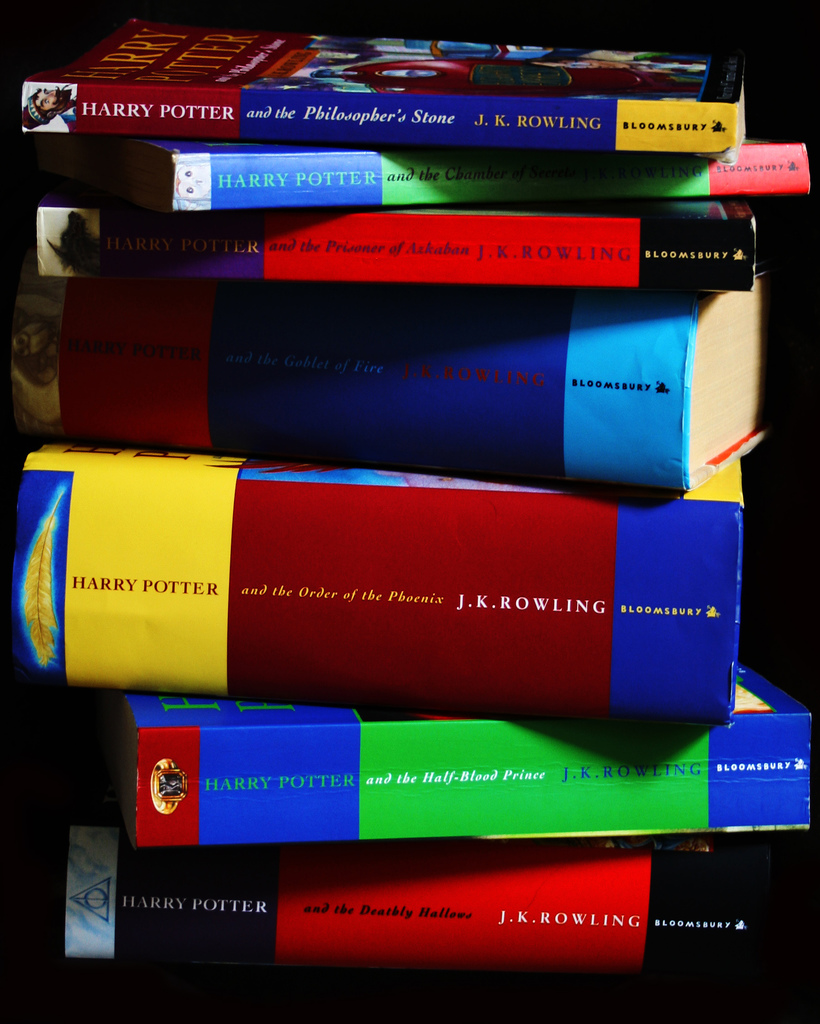I mentioned in a previous post that I was extremely excited to be placed in Ravenclaw. I learned some interesting things about Ravenclaw House that do not make it into the series.
The prefect who welcomes new Ravenclaws in Harry’s year is named Robert Hilliard. He is a character we never meet in any of the books, but it stands to reason that his female counterpart is Penelope Clearwater.
Ravenclaw House is the only one of the four houses with no concealed entrance. As we saw in Deathly Hallows, in order to get in the Common Room, Ravenclaws must answer a question. Presumably, this requirement keeps out members of other houses. Doesn’t say much for what they think of the intelligence of the other students! However, Robert Hilliard claims this “simple barrier” has kept out everyone but Ravenclaw students for 1,000 years. However, as the questions sometimes pose a challenge, Hilliard warns that it is not unusual to see a crowd of students outside the door attempting to answer the question, and he advises first years to triple check belongings before leaving Ravenclaw Tower because it might be hard to get back in.
Hilliard maintains that Ravenclaws are the most accepting of eccentrics, and when one considers that such noted eccentrics as Quirinius Quirrell, Garrick Ollivander, and Luna Lovegood were Ravenclaws, he probably has a point.
Hilliard also shares the rumor that the Head of Ravenclaw House, Filius Flitwick is small because he is part elf, but no one has ever asked. Professor Flitwick is said to cheer up his students by entertaining them with dancing cupcakes.
Famous Ravenclaws include the following:
- Perpetua Fancourt, the inventor of the lunascope.
- Laverne de Montmorency, a great pioneer of love potions.
- Ignatia Wildsmith, the inventor of Floo powder.
- Millicent Bagnold, Minister for Magic who was in power on the night that Harry Potter survived the Dark Lord’s curse, and defended the wizarding celebrations all over Britain with the words, “I assert our inalienable right to party.”
- Minister for Magic Lorcan McLaird, who was a quite brilliant wizard, but preferred to communicate by puffing smoke out of the end of his wand.
- Uric the Oddball, who used a jellyfish for a hat. He’s the punch line of a lot of wizarding jokes.
About the students in other houses, Hilliard shares the following:
- Slytherins. They’re not all bad, but you’d do well to be on your guard until you know them well. They’ve got a long house tradition of doing whatever it takes to win—so watch out, especially in Quidditch matches and exams.
- The Gryffindors are OK. If I had a criticism, I’d say Gryffindors tend to be show-offs. They’re also much less tolerant than we are of people who are different; in fact, they’ve been known to make jokes about Ravenclaws who have developed an interest in levitation, or the possible magical uses of troll bogies, or ovomancy, which (as you probably know) is a method of divination using eggs. Gryffindors haven’t got our intellectual curiosity, whereas we’ve got no problem if you want to spend your days and nights cracking eggs in a corner of the common room and writing down your predictions according to the way the yolks fall. In fact, you’ll probably find a few people to help you.
- As for the Hufflepuffs, well, nobody could say they’re not nice people. In fact, they’re some of the nicest people in the school. Let’s just say you needn’t worry too much about them when it comes to competition at exam time.
He adds that the Ravenclaw ghost, the Grey Lady, doesn’t speak to other students, but she will help out Ravenclaws. Perhaps it is all the more stunning, then, that Tom Riddle and Harry Potter both managed to get her to talk to them.
Other characters who were in Ravenclaw House include the following:
- Moaning Myrtle
- Filius Flitwick
- Garrick Ollivander
- Quirinius Quirrell
- Helena Ravenclaw
- Penelope Clearwater
- Roger Davies
- Eddie Carmichael
- Cho Chang
- Marietta Edgecombe
- Terry Boot
- Mandy Brocklehurst
- Michael Corner
- Padma Patil
- Marcus Belby
- Anthony Goldstein
- Morag McDougal
- Lisa Turpin
- Stewart Ackerley
- Orla Quirke
- Unknown Fawcett (Snape takes points off this student at the Yule Ball)
- Unknown Chambers and Unknown Bradley (Quidditch players)
Updated, 6/4/13 to add that Gilderoy Lockhart was a Ravenclaw. WTF?
